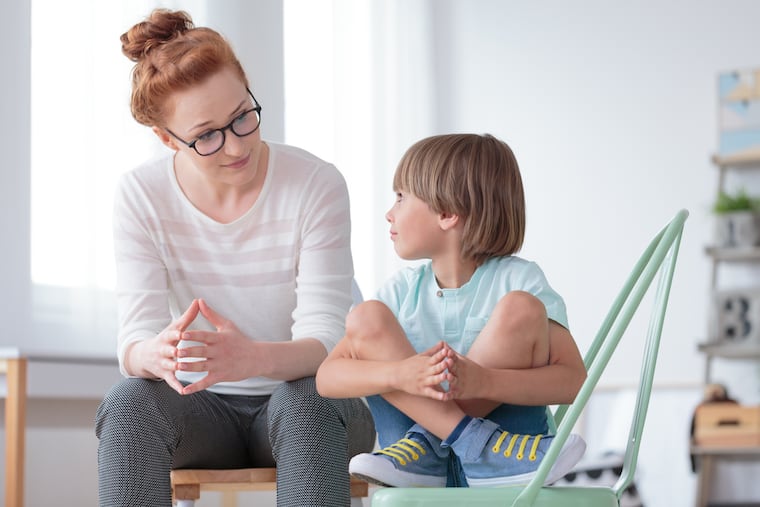How can a school psychologist help my child?
Whether a child is struggling academically or facing a bullying situation, a school psychologist can be a helpful resource to help resolve the issue along with parents and teachers.

Whether a child is struggling academically or facing a bullying situation, a school psychologist can be a helpful resource to help resolve the issue along with parents and teachers.
We asked Jessica Glass Kendorski PhD, NCSP, BCBA-D, an associate professor in Department of Psychology at the Philadelphia College of Osteopathic Medicine and member of the Inquirer Advisory Panel to tell us more about their role in schools.
What does a school psychologist do?
A school psychologist supports the cognitive, academic, social, and emotional needs of students. School psychologists also support school systems such as global policies related to curriculum and discipline, and help create safe and effective learning environments for children.The day-to-day responsibilities of a school psychologist can include varying level of support from individual support to a child following an incident of bullying to providing a cognitive standardized test to a student suspected of having a learning disability. Additionally, school psychologists also work with teachers, guidance counselors and other school staff to help support the success and overall well being of all students and to provide additional assessment and interventions to help students achieve their maximum potential.
How common is it for schools to have a school psychologist?
Most school districts will have a school psychologist, however, there may not be one present at an individual school. For example, some private or charter schools may not have a school psychologist on staff but may use contractors from another provider. Some school psychologists will work with multiple schools, but others may be assigned to one school in the district based on need.
When should I consult with my school psychologist about my child's behavior?
Anytime you suspect that there is something that is impeding the social, emotional or academic functioning of your child. These types of concerns can include difficulty making friends to problems with attention and concentration. Every child has the right to a free and appropriate public education in the least restrictive environment.
If you believe your child has a concern that is impeding their success and access to this education, then it is the school's responsibility to test your child and provide intervention if needed. The school psychologist, in conjunction with other school staff, can make the determination on whether a child is eligible for special education or an individualized education plan.
What if my school doesn't have a school psychologist and my child needs mental health support?
With the unfortunate recent increase in school violence, schools have become more aware and more invested in the mental health of their students. In addition to the school psychologist, school social workers or counselors can also help support the mental health needs of children.
Because children spend the majority of their day at school, it is the best environment in which to identify a child's mental health issues and plan an intervention. That said, communication between the parent and the schools essential for proper support. Parents must communicate their concerns to the school, and schools must promote positive collaboration to ease parental communication.
However, If a parent feels they are not receiving the support they need from the school, or the school is not able to provide needed services such as intensive family therapy, then there are varying community mental health centers that are also available. The most important thing to remember is to communicate any concerns to the school early and often if needed. As a parent, if you see something, say something.
Visit the National Association of School Psychologists for more information.